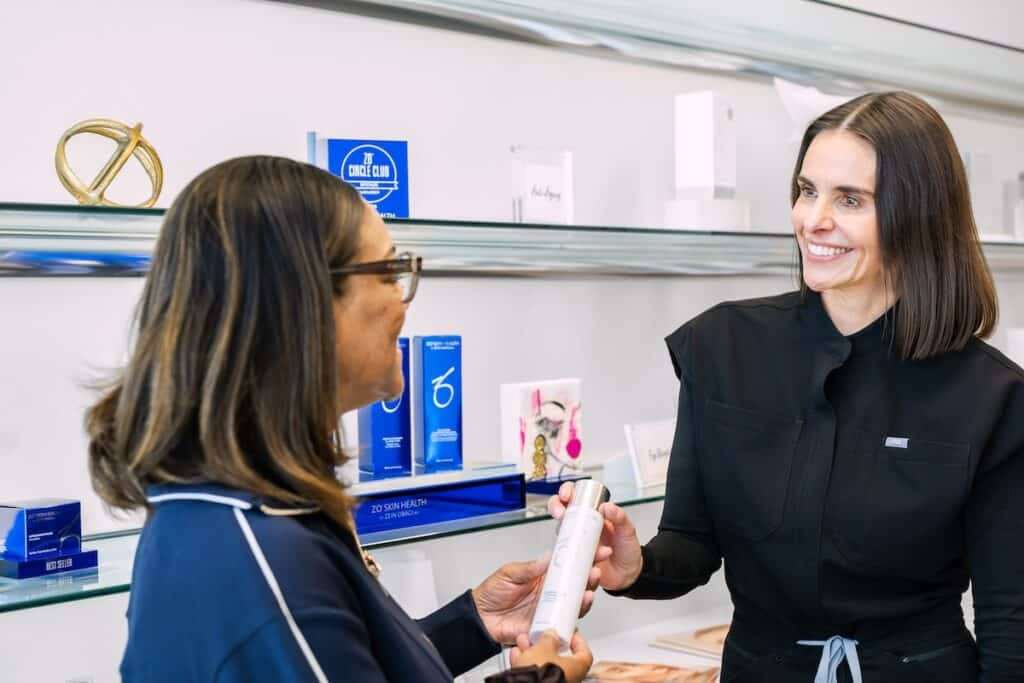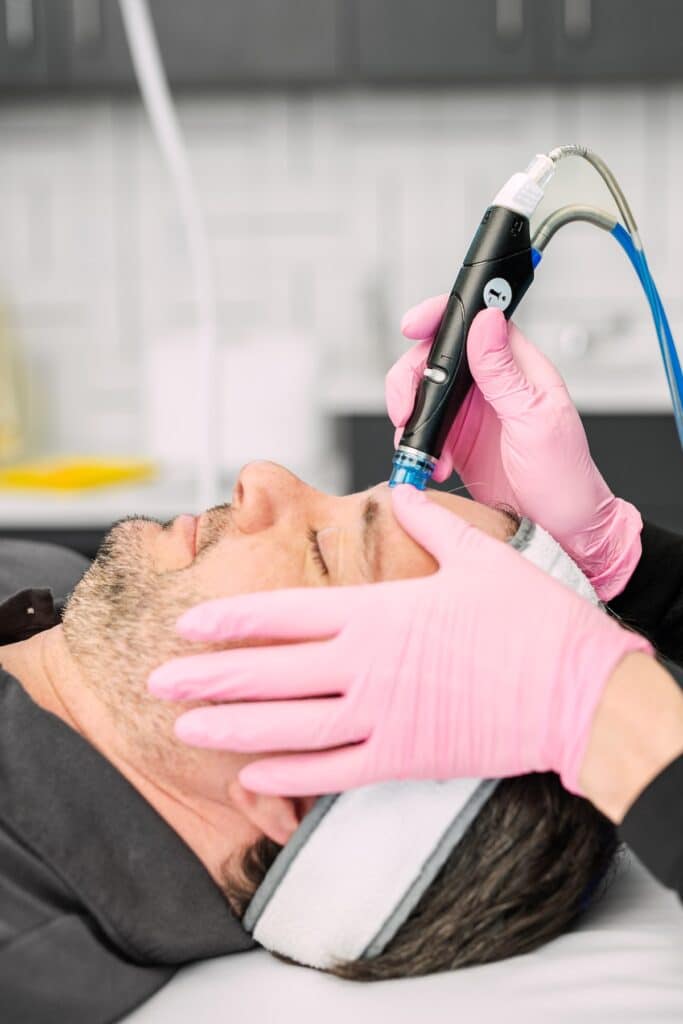Frequently Asked Questions
Below are some of our patients’ most frequently asked questions about plastic surgery or our clinic. We would love to hear from you if you have other questions or want to schedule a consultation.
All surgical procedures, whether for medical or cosmetic reasons, are accompanied by a certain degree of risk, but our team is dedicated to making your operation go smoothly. We carefully review your medical history and current health condition before deciding if it is safe for you to proceed with surgery.
It’s important that you fully disclose all pertinent information so we can accurately assess the risks involved. We will take every precaution necessary to reduce the possibility of any complications.
There are several important factors that come into play when deciding whether plastic surgery is the right option for you.
One of the most important factors is your health. Being in good health greatly reduces the risk of complications during surgery and leads to a speedy recovery.
Next, you need to ask yourself what your motivations are. People who have plastic surgery generally find that the surgery enhances their overall appearance and self-esteem.
Thirdly, you should have realistic expectations. Plastic surgery is both a science and an art, neither of which is perfect. Set reasonable goals for the result you wish to achieve, and be prepared to discuss these goals thoroughly during your initial consultation.
It’s a relatively common practice for a plastic surgeon to perform multiple procedures during one operation. However, having too much done at one time can lead to complications.
The decision to have multiple procedures depends on which procedures are being done, the extent of surgery, the operating time, and your age/health.
Ultimately, the surgeon decides whether or not it is appropriate to include more than one procedure in your operation.
During your consultation, we will discuss your desired changes and expectations, review your medical history and current health, and assess whether the procedure(s) in question is right for you.
This is a good time to ask specific questions about the procedure so that you are fully prepared, mentally and emotionally, for surgery. We will discuss the achievable results with the help of photos.
When a final decision is made, you will need to sign an informed consent form stating that you are fully aware of and understand what your pending operation entails, including the potential complications and secondary effects.
Due to the variety of procedures available in plastic surgery, there can be no blanket age rule, although age will be taken into consideration when planning your operation. People of all ages have taken advantage of the image enhancement offered by plastic surgery.
It’s important to realize the limitations of plastic surgery. Plastic surgery cannot “fix” every situation or reverse the aging process. What may be a suitable procedure for one person may not be for another.
Generally, post-operative instructions call for rest and limited movement in order to speed up the healing process and recovery time. The length of recovery varies with each procedure and is different for each individual. Bruising may last a week or more, swelling can last longer depending on the procedure but it may take a few months to see your final result.
If you follow our post-operative instructions carefully, you will be able to enjoy your normal activities in no time. Your scars will fade over time but are permanent. We take care to conceal any scars so that they are barely visible, if at all. The appearance-enhancing effects of plastic surgery become more evident over time, with certain procedures taking up to a year for your body to fully adjust and settle into its new look.
When you come in for your consultation, we can discuss your expected recovery period and any post-operative instructions in detail.
Insurance providers generally cover costs for reconstructive surgery but not for cosmetic surgery. For example, insurance providers will often pay for breast augmentation to reconstruct a breast following a mastectomy, breast reduction to remedy back pain caused by heavy breasts, eyelid surgery to remove sagging skin that blocks vision, and nose surgery to allow a patient to breathe better.
By law, insurance providers are required to cover breast reconstruction surgery and any cosmetic operations necessary to create symmetry in either breast. If your surgery is covered by insurance, pre-certification is required. We will be happy to assist you with the process.
The issue of breast implant safety has been a hot topic for the last few decades. As a result, more stringent standards have emerged to protect patients.
Current breast implant procedures primarily use silicone shell implants filled with a saline solution or a silicone implant gel. It’s extremely rare for an implant to rupture or leak. If that does happen though, with saline implants, the saline is safely absorbed into the body. The effects of silicone-gel leaking into the body is still under research.
If rupture or leaking is detected early, the implant can be easily replaced. Other possible complications from breast implant surgery may include blood clotting or pooling, overly sensitive breasts or loss of sensation in the breasts, and capsular contracture (a hardening of the tissues surrounding the implant).
We take every precaution necessary to reduce the possibility of any complications!
You will be under anesthesia for your operation, so there will be no pain during the procedure. In the days (or weeks) following the operation, you may experience some discomfort, which can be treated with oral medication.
As with any surgical procedure, you will have a scar. However, we can discuss ways to lessen the appearance of your scarring with you during your consultation and after surgery.
The type of anesthesia varies with each procedure. For some procedures, only local anesthesia or local anesthesia with intravenous (IV) sedation is needed. This method allows you to stay awake, but you’ll be insensitive to any pain.
In more complex procedures, general anesthesia is needed, and you will be asleep during the entire procedure. The anesthesia used in your operation will depend on the type and extent of the procedure(s), your age, and the surgeon’s preference.
Our cosmetic consultations are $10. For reconstructive consultations, we will file a claim through your insurance company.
Of course! Dr. Stacey is board-certified by the American Board of Plastic Surgery. This is the ONLY official board for certifying plastic surgeons in the United States.
Many healthcare providers are now performing plastic surgery procedures, but that doesn’t mean they’re all qualified to perform plastic surgery.
Dr. Stacey is a member of the American Society of Plastic Surgeons (ASPS). ASPS Member Surgeons are trained in cosmetic and reconstructive procedures of all types.
Plastic surgery involves many choices, and the first and most important choice is selecting an ASPS Member Surgeon you can trust. ASPS Member Surgeons meet rigorous standards:
- Board certification by the American Board of Plastic Surgery® (ABPS).
- Complete at least six years of surgical training following medical school with a minimum of three years of plastic surgery residency training.
- Pass comprehensive oral and written exams.
- Graduate from an accredited medical school.
- Complete continuing medical education, including patient safety, each year.
- Perform surgery in accredited, state-licensed, or Medicare-certified surgical facilities.
- Adhere to a strict Code of Ethics.
Do not be confused by other official sounding boards and certifications.
The ABPS is recognized by the American Board of Medical Specialties (ABMS), which has approved medical specialty boards since 1934. There is no ABMS-recognized certifying board with “cosmetic surgery” in its name. By choosing a member of the American Society of Plastic Surgeons, you can rest assured that you are choosing a qualified, highly-trained plastic surgeon.
Yes, we do! We offer financing through CareCredit and Prosper Healthcare Lending.






